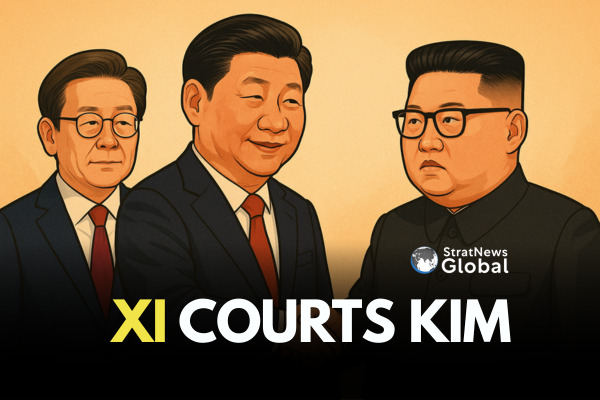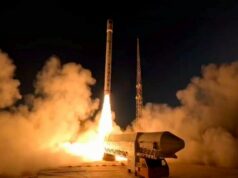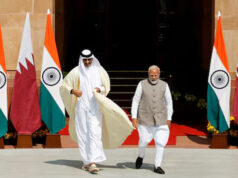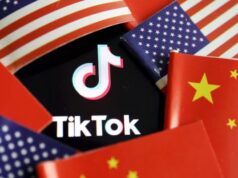Is the visit of North Korea’s Foreign Minister Choe Sun-hui to Beijing on Saturday, linked to a request from South Korea that China help restart a Seoul-Pyongyang dialogue? The signals do suggest that could be the case.
Seoul’s Push for Dialogue
South Korea’s new President Lee Jae Myung has resumed closer engagements with China since taking office in June this year. His foreign minister Cho Hyun was in Beijing only last week where he called for re-starting the dialogue with North Korea.
According to a report in the South China Morning Post, he stressed the need for “denuclearisation and peace on the Korean peninsula.” Would Pyongyang have any interest in talks aimed at its denuclearisation? Those very nuclear weapons are seen to have ensured the regime of Kim Jong-un survives and thrives.
Last year North Korea amended its constitution to declare South Korea “a hostile state,” and its “principal enemy”. Looked at that way, the stakes seem loaded against any peace pipe being lit much less smoked. In fact, by sending troops to help the Russians in Ukraine in return for food aid and a defence pact that has helped him upgrade his ageing military including nuclear weapons, Kim has strengthened his position.
Observers say his presence at the parade held in Beijing earlier this month marking 80 years since the end of World War II reflected shared interests. There standing along with him were Xi Jinping and Vladimir Putin. In fact, some scholars believe the Pyongyang-Beijing equation bears closer scrutiny.
Chinese state media reported effusively on Kim Jong-un’s presence at the parade, widely carrying Xi’s remarks affirming its “traditional friendship” with North Korea, pledging to safeguard stability on the Korean Peninsula and expand cooperation.
“No matter how the international situation changes, this position will not change,” media reports quoted Xi telling Kim.
Add to that Wang Yajun, China’s ambassador to North Korea saying that Beijing is “open to thoroughly implementing the important understanding reached between the two countries’ leaders,” aiming for what he called “bigger-than-ever development in bilateral relations.”
Kim was more restrained, stating that his government would “as ever invariably support and encourage the stand and efforts of the Communist Party of China and the government of the PRC.”
Expert Perspectives
Jenny Town, Senior Fellow at the Stimson Center and Director of 38 North, says ties between Pyonyang and Beijing have been “rather cold and perfunctory”. China wants stability on the Korean peninsula and has struggled to tame Kim’s nuclear weapon ambitions.
But with the possibility of changes in US–Russia relations if the Ukraine war winds down, and Donald Trump signalling interest in reviving diplomacy with Kim Jong Un, Beijing is working to ensure it is not sidelined.
“As we saw ahead of the first Trump–Kim summit in 2018, China doesn’t want to be left out of the mix. Xi quickly moved to engage Kim then, to remind him of Chinese interests, and seems to be doing the same now. We can expect further proactive measures from Beijing, especially on political and economic fronts, though it remains to be seen how warmly Pyongyang will respond,” she said.
Strategic Stakes Ahead
Analysts expect China to follow up with additional steps to rebuild cooperation with Pyongyang in the coming months. For Beijing, the foreign minister’s visit builds on the momentum of Kim’s talks with Xi and serves as a reminder to Washington that China intends to remain an indispensable player in shaping the strategic future of Northeast Asia. South Korea may well be left to its own devices.
Research Associate at StratNewsGlobal, A keen observer of #China and Foreign Affairs. Writer, Weibo Trends, Analyst.
Twitter: @resham_sng







